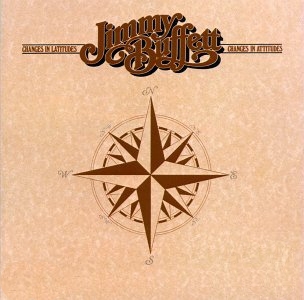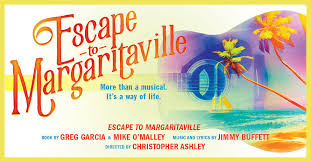
The Caine Mutiny is a 1954 American military trial film directed by Edward Dmytryk, produced by Stanley Kramer, and starring Humphrey Bogart, José Ferrer, Van Johnson, Robert Francis, and Fred MacMurray. It is based on Herman Wouk's Pulitzer Prize-winning 1951 novel of the same name. Set in the Pacific theatre of World War II, the film depicts the events on board a U.S. Navy destroyer-minesweeper and the subsequent court-martial of its executive officer for mutiny.

Carl Hiaasen is an American journalist and novelist. He began his career as a newspaper reporter and by the late 1970s had begun writing novels in his spare time, both for adults and for middle grade readers. Two of his novels have been made into feature films, and one has been made into a TV series.

James William Buffett was an American singer-songwriter. He was known for his tropical rock sound and persona, which often portrayed a lifestyle described as "island escapism" and promoted enjoying life and following passions. Buffett recorded many hit songs, including those known as "The Big 8": "Margaritaville" (1977), which is ranked 234th on the Recording Industry Association of America's list of "Songs of the Century"; "Come Monday" (1974); "Fins" (1979); "Volcano" (1979); "A Pirate Looks at Forty" (1974); "Cheeseburger in Paradise" (1978); "Why Don't We Get Drunk" (1973); and "Changes in Latitudes, Changes in Attitudes" (1977). His other popular songs include "Son of a Son of a Sailor" (1978), "One Particular Harbour" (1983), and "It's Five O'Clock Somewhere" with Alan Jackson (2003). Buffett formed the Coral Reefer Band in 1975.

Changes in Latitudes, Changes in Attitudes is the seventh studio album by American popular music singer-songwriter Jimmy Buffett. This is his breakthrough album, which remains the best-selling studio album of Buffett's career, and contains his biggest single, "Margaritaville". It was initially released in January 1977 as ABC AB-990 and rereleased on its successor label, MCA.
The music of Anguilla is part of the Lesser Antillean music area. The earliest people on the island were the Caribs and Arawaks, who arrived from South America. English settlers from St Kitts and Irish people colonized the island later. Unlike regional neighbors, however, the plantation system of agriculture which relied on chattel slavery never took root in Anguilla, causing a distinctly independent cultural makeup. The most recent influences on Anguilla's musical life come from elsewhere in the Caribbean, especially the music of Trinidad and Tobago and Jamaica, as well as abroad, especially the music of the United States and the United Kingdom. Anguilla's Rastafarian heritage has played a role in the island's music and culture and produced influential figures like activist Ijahnya Christian and Robert Athlyi Rogers, the author of The Holy Piby.

Herman Wouk was an American author. He published fifteen novels, many of them historical fiction such as The Caine Mutiny (1951), for which he won the Pulitzer Prize in fiction.

Hassel Island is a small island of the U.S. Virgin Islands, a United States territory located in the Caribbean Sea. Hassel Island lies in the Charlotte Amalie harbor just south of Saint Thomas and east of Water Island, with which it is part of the sub-district of Water Island.

White Light is a work of science fiction by Rudy Rucker published in 1980 by Virgin Books in the UK and Ace Books in the US. It was written while Rucker was teaching mathematics at the University of Heidelberg from 1978 to 1980, at roughly the same time he was working on the non-fiction book Infinity and the Mind.

Jimmy Buffett's Margaritaville is a United States-based hospitality company that manages and franchises a casual dining American restaurant chain, retail stores selling Jimmy Buffett-themed merchandise, and hotels.
The appearances of tropical cyclones in popular culture spans many genres of media and encompasses many different plot uses.

A Salty Piece of Land is a 2004 novel by bestselling author and songwriter Jimmy Buffett. It is about a fictional American westerner, Tully Mars, who goes to work repairing an island lighthouse. Buffett first introduced the character Tully Mars in his earlier work, Tales from Margaritaville. The book includes a CD single with a song of the same title as the book.

Youngblood Hawke is a 1962 novel by American writer Herman Wouk about the rise and fall of a talented young writer of hardscrabble Kentucky origin who briefly becomes the toast of literary New York City. The plot was suggested by the life of the North Carolina-born novelist Thomas Wolfe.

The Caine Mutiny is a 1952 Pulitzer Prize-winning novel by Herman Wouk. The novel grew out of Wouk's personal experiences aboard two destroyer-minesweepers in the Pacific Theater in World War II. Among its themes, it deals with the moral and ethical decisions made at sea by ship captains and other officers. The mutiny of the title is legalistic, not violent, and takes place during Typhoon Cobra, in December 1944. The court-martial that results provides the dramatic climax to the plot.
Unburnable is a 2006 novel written by Antiguan author Marie-Elena John and published by HarperCollins/Amistad. It is John's debut novel. Part historical fiction, murder mystery, and neo-slave narrative, Unburnable is a multi-generational saga that follows the African Diaspora in the United States and the Caribbean, offering a reinterpretation of black history. John was an Africa Development specialist in New York City and Washington, D.C., prior to turning to writing. Since publication of Unburnable, she has worked with the United Nations, currently serving as Senior Racial Justice Lead at UN Women.
Jimmy Buffett sound board live albums are a series of live albums by American singer-songwriter Jimmy Buffett recorded directly from the sound board without further editing thus resembling bootleg recordings. The albums were recorded at various concerts throughout the United States and represent typical Buffett live shows of their era with most of the albums recorded during Buffett's 2003 Tiki Time Tour. They have been released on compact disc on Buffett's own Mailboat Records distributed by RCA.

Off to See the Lizard is the seventeenth studio album by American popular music singer-songwriter Jimmy Buffett. Initially to be called Stranger than Fishing, it was released in June 1989 as MCA 6314 and was produced by Elliot Scheiner and Buffett. The album is the first to feature much of the Coral Reefer Band. Following the release of this album, Buffett paused his normal output of one album every year or two and did not release another album until 1994's Fruitcakes.

Don't Stop the Carnival is Jimmy Buffett's 22nd studio album, and his first for Island Records after leaving MCA. It's named after the 1965 Herman Wouk novel that inspired a short-run stage play in Miami, which Buffett produced alongside Wouk. The album was released to promote the play, and features 20 compositions related to its themes. It reached #15 on the Billboard 200 albums chart.
The Winds of War is a 1983 American war drama television miniseries, based on the 1971 novel of the same name written by Herman Wouk. It was produced and directed by Dan Curtis, while Wouk adapted his own novel to screen. Like the novel, the series follows the lives of the fictional Henry and Jastrow families as they intersect with the major global events of the early years of World War II. The series also includes segments of documentary footage, narrated by William Woodson, to explain major events and important characters. It stars an ensemble cast, featuring Robert Mitchum, Ali MacGraw, Jan-Michael Vincent, John Houseman, Polly Bergen, Chaim Topol, Peter Graves, Jeremy Kemp, Victoria Tennant, and Ralph Bellamy.
Don't Stop the Carnival may refer to:

Escape to Margaritaville is a 2017 American jukebox musical by Greg Garcia and Mike O'Malley, based on the songs of Jimmy Buffett. The plot revolves around a part-time bartender and singer who falls for a career-minded tourist. The show's music consists of songs previously recorded by Buffett, and written by him and various other songwriters, with one exception, the original song "Three Chords".














